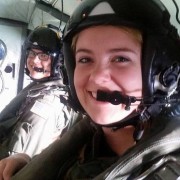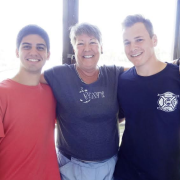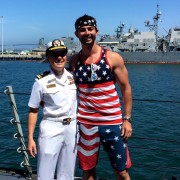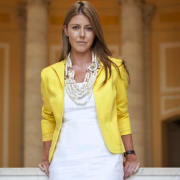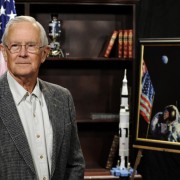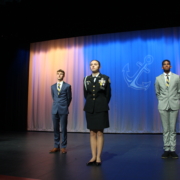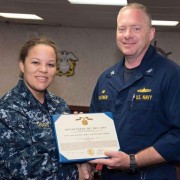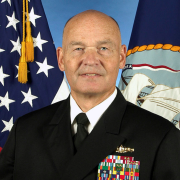Dr. Steven Hoffman ‘77N receives 2015 PRIDE Award at Southeast Missouri State University
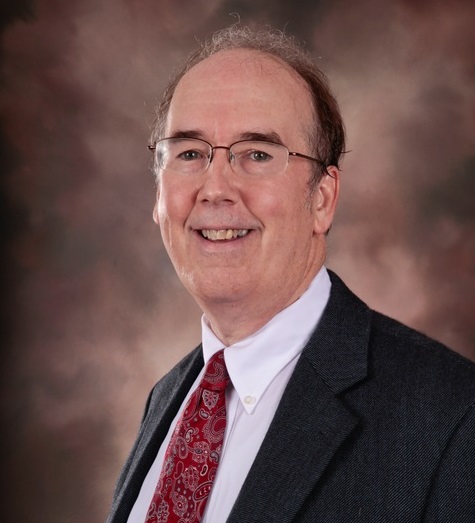
Dr. Steven Hoffman, who graduated from Admiral Farragut Academy’s Pine Beach campus in 1977, recently was rewarded for his achievements at Southeast Missouri State University (Southeast) with the 2015 PRIDE Award, which recognizes a faculty member who has demonstrated excellence as a teacher with extraordinary level of scholarship, service and accomplishment.
As part of the recognition, Hoffman served as the grand marshal during the Dec. 19th commencement at Southeast while also presenting the Honors Convocation. Read more on the award.
During his 20-year tenure at Southeast, Hoffman, who is the coordinator of the historic preservation program and professor of historic preservation in the Department of History at Southeast, has served in a variety of leadership roles on numerous national and local committees, namely as the president of the Board of Directors for the Missouri Main Street Connection, member of the Board of Directors of Old Town Cape LLC., secretary of the National Council for Preservation Education, and a member of the Education Committee for the 2015 and 2016 National Main Street Conference.
Before coming to Southeast in 1995, Hoffman served as an instructor of history at Carnegie Mellon University, adjunct assistant professor at Bentley College in Waltham, Massachusetts, and a lecturer at Bradford College in Bradford, Massachusetts. Hoffman earned a doctoral degree in history in 1993 from Carnegie Mellon University in Pittsburgh, Pennsylvania, and his Master of Heritage Preservation in 1987 and Bachelor of Arts in history, both from Georgia State University.
Hoffman was kind enough to take time out of his busy schedule to talk with us about his time at Farragut and how it prepared him for the foundation of success in his life.
Q & A with Dr. Steven Hoffman, Class of 1977
What did Farragut initially do for you as a young student?
It gave me a solid foundation for understanding how to prepare, both in school and in life. Going to college was relatively easy because I knew the requirements necessary to succeed. I knew how to write well and how to have a disciplined approach to learning.
You were most recently honored by Old Town Cape with an endowed scholarship in your name, due in large part to your efforts working with Old Town Cape to place many area properties in the National Register for Historic Places, including the Broadway-Middle Commercial Historic District (Boundary Increase II), J Maple and Grace Seene Wilson House, Broadway Theatre, St. James AME Church, and the Court of Common Pleas. We talked briefly before this interview about how Farragut instills the importance of leadership as well as collaboration in young men and women. Can you discuss this more in detail?
One of the most important aspects of what I do now in terms of historic preservation comes in how I teach and guide students to take a leadership initiative while also be willing to work together. It could be a conundrum for many, an interesting dynamic to grasp. Farragut knows how to cultivate it, though, because of the rank system that teaches structure and respect. Yet, Farragut also encourages each and every person to lead and don’t be fearful of leading. The integrity, the value of service to others over service to self leads one to adopt the concept that we owe something to the world bigger than just our pure existence. I would like to think we leave the world a little better than we came into it.
As you know, Farragut is steeped in tradition. Whether through a conscious development or a subconscious order of events, history became your calling card, specifically African-American history. Did Farragut play any role in this path?
In fact, it did. This is how Farragut I believe truly prepares you for the world, through the hidden curriculum — and by hidden curriculum, I mean though the interaction with people from all over the world and from all different types of backgrounds, different ethnicities, different languages, different economic backgrounds. It opens your eyes to “who” the world really is. Farragut exposed me to a wide variety of people in a similar fashion that college does. Not many high schools can do that. It isn’t something that is necessarily planned like actual classes, but the lessons you learn by interacting with a global community on a daily basis prepares you for life after high school. Like college, you come into contact and you develop relationships with people who aren’t “like me.” I feel I was much better prepared for college because of this type of environment. Now, I enjoy teaching my students about the world around them. Here in Missouri, Ferguson was a major event portrayed in many ways in the national media. We just recently finished discussing it in one of my courses about Jim Crow. There is a connection with the community that allows us to give our students experiential learning. We work on projects that are important to the community. That ability to take what we are doing in academia and put it into practice in the real world is very satisfying. So, yes, Farragut did have a major role in helping to shape my foundation.
We briefly talked about how you and your wife, Margaret Waterman (who is a professor in the Department of Biology at Southeast – they have a son, Russell, who is in his third year of law school at the University of Pennsylvania) have used your opportunity in academia to learn from others, while also teaching others, around the world. With that being said, what is your favorite place?
Because of my wife’s work in science, I have been lucky enough to tag along, so to speak. Traveling, in general, seeing the world and what it has to offer is probably my most favorite. We’ve been to some incredible places – India, China, Peru, this upcoming break we are going to Uruguay. But if I had to choose, it would be Singapore. It has this incredible beauty of being exotic and tropical while also being ultramodern.
Favorite book?
Even though I love the study of history, science-fiction reading is my thing; it’s an escape from reality for me. I am on the ninth book (Deliverer) of the 16-book series, Foreigner.
Star Wars or Star Trek?
Both, actually. One is based more on faith and religion while the other is pure science. But both of them are iconic in their respective right.

